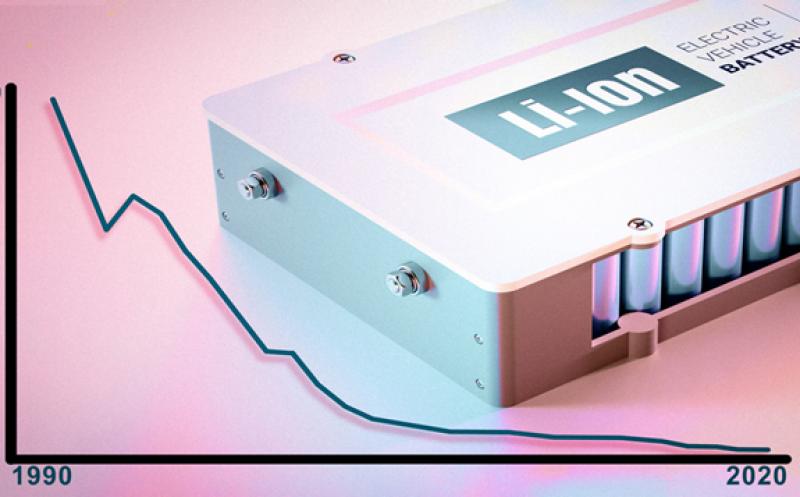Lithium-ion battery costs have declined by almost 100% since their introduction 30 years ago, new study shows.

The study from Massachusetts Institute of Technology (MIT) finds that this drop is faster than has been widely claimed.
Moreover, further steep declines could be possible, which could impact beneficially on items such as laptops and cell phones and importantly stationary storage and electric vehicles, which still need to become more affordable for the mass uptake that is envisaged.
The study found that the real price of lithium-ion cells, scaled by their energy capacity, has declined by about 97% since 1991.
Between 1992 and 2016, the real price per energy capacity declined an estimated 13% per year and upon a doubling of cumulative market size decreased 20%. When energy density is incorporated into the definition of service provided by a lithium-ion battery, the estimated technological improvement rates increase to 17% and 27% respectively.
These declines mirror those seen with solar photovoltaic panels and together are providing the ‘perfect storm’ that is enabling the rapid uptake of home distributed resources.
The study was undertaken to resolve conflicting results from earlier studies, with the researchers going back where possible to the original datasets of the past three decades.
In so doing they say they also found similar disagreements in other battery characteristic data trends, such as improvements in energy density and specific energy.
“These trends are so consequential for getting us to where we are right now, and also for thinking about what could happen in the future,” says Jessika Trancik, associate professor in MIT’s Institute for Data, Systems and Society and one of the study authors.
“Many important climate policy conclusions are based on these few [published] trends. For this reason, it is important to get them right. There’s a real need to treat the data with care, and to raise our game overall in dealing with technology data and tracking these trends.”
Trancik and co-researcher MIT postdoc Micah Ziegler attribute the previous uncertainty over declining battery costs primarily to the fact that most lithium-ion batteries are not sold directly to consumer. Rather they are sold to or manufactured by large companies such as Apple, Samsung or Tesla in numbers into the millions in deals that remain in the form of closely held corporate data.
The researchers consider a key outcome of the study to feed into energy policy making. For example, battery costs are a key determinant of electric vehicle prices, which in turn feed into adoption rate projections and in turn to electricity distribution planning.
“Published data trends on the few clean technologies that have seen major cost reductions over time, wind, solar, and now lithium-ion batteries, tend to be referenced over and over again, and not only in academic papers but in policy documents and industry reports,” Trancik points out.
The study was published in the journal Energy and Environmental Science.